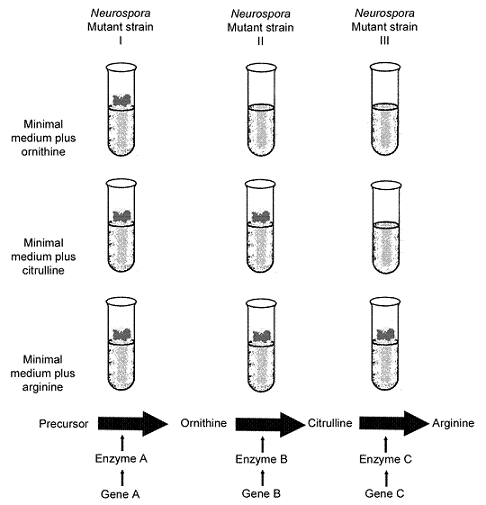The conclusion associated with mutant strain III in Figure 13-1 was that it:
a. contained all the enzymes needed for normal metabolism.
b. was missing all the enzymes for metabolism of amino acids.
c. was missing an enzyme for metabolism and could not synthesize arginine.
d. was missing an enzyme for metabolism and could not synthesize citrulline.
e. was missing an enzyme for metabolism and could not synthesize ornithine.
C
You might also like to view...
During bacterial conjugation, you wish to examine genes associated with the F plasmid of your bacterial strain of interest, as you feel that it possesses an additional gene. You are able to easily determine the presence or absence of the gene you believe to be associated with the plasmid. In order to investigate this possibility, you must allow conjugation between your strain and a compatible
strain that is A) an Hfr strain. B) another F+ strain. C) an F' strain. D) an F- strain. E) the same F+ strain.
Tight junctions ____
a. seal the spaces between cells
b. allow ions and small molecules to pass between cells c. allow cells to communicate with each other d. give the cell its shape e. anchor the cell membrane to the cell wall
What type of connective tissue is able to withstand stretching in any direction and consists of fibroblasts interspersed among a tight mesh of randomly arranged collagen fibers?
a. loose connective tissue b. dense regular connective tissue c. dense irregular connective tissue d. cartilage e. bone
How many embryos did Nadya Suleman’s
doctor put into her uterus?
a. 8 b. 9 c. 10 d. 11 e. 12